Can you imagine how heavy your life would feel if every minor criticism, casual remark, or rejection cut deeper than intended? Seems tiring even thinking about it, right? For some people, that’s reality, and chances are they suffer from Rejection Sensitivity Dysphoria (RSD).
The daily experiences of those coping with Rejection Sensitivity Dysphoria are like living in a world where everything feels like an attack on their self-worth, self-confidence, and respect.
Let’s explore the world of Rejection Sensitivity Dysphoria a bit more by trying to understand what is rejection sensitivity dysphoria, the causes of rejection sensitive dysphoria, and how to deal with it.
Related: 6 Signs That You Might Be Rejection-Sensitive
What Is Rejection Sensitivity Dysphoria?
Rejection Sensitivity Dysphoria is sort of like an emotional allergy to rejection and criticism; everything stings. It’s as if you’re walking through a field of landmines during social interactions.
Where you can step on one for something as simple as a ‘no’, or a curt text message. Or maybe it’s the way someone looked at you or maybe didn’t look at you.
At its core, it means having an extreme sensitivity to real or imagined rejection or criticism. Dysphoria means “hard to bear”, so yes the name does accurately describe this condition.
People with Rejection Sensitivity Dysphoria tend to feel intense emotional pain and discomfort from situations where they feel rejected, dismissed, or criticized.
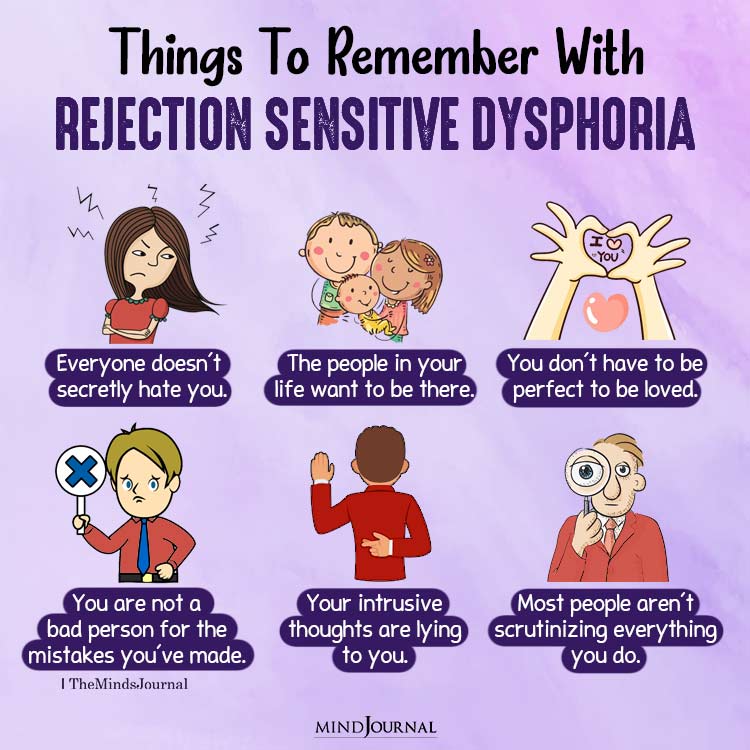
Now that we have talked about what is Rejection Sensitivity Dysphoria, let’s discuss the causes of Rejection Sensitive Dysphoria.
Causes Of Rejection Sensitive Dysphoria
Even though there are no solid causes behind this, there are some possible causes that can contribute to you feeling like this. Some of the probable causes are mentioned below.
- Genetics
- ADHD & neurodevelopment disorders
- Childhood trauma
- Social conditioning
- Emotional dysregulation
- High sensitivity
- Low self-esteem
- Parenting style
- Social isolation and social anxiety
- Body dysmorphia
- Avoidant personality disorder
- Substance or alcohol use disorders
8 Signs Of Rejection Sensitive Dysphoria
1. You are extremely self-conscious.
You easily get embarrassed and often feel like you have to walk on eggshells during any social interaction because disappointment will always find its way to you next, right?
You find yourself closely watching over everything you say just because you don’t want to risk being let down or left behind. This leads to over-apologizing and over-explaining yourself and makes you even more self-conscious and anxious at the end of the day.
2. You just cannot digest the idea of failure.
Nobody likes getting things wrong or failing at something. And yes, it can sometimes make us feel a little crushed, but that doesn’t mean we won’t try again and it certainly doesn’t mean we don’t see an opportunity to grow.
But if you are someone who has Rejection Sensitivity Dysphoria, the idea of failure horrifies you. And everyone knows this about you because there’ve been many situations where you have lost it, just because you failed at something. This fear can sometimes lead you to procrastinate or even push you towards perfectionism.
Related: How To Deal With Rejection In a Healthy Manner
3. You overthink and overanalyze everything.
You ever meet someone who seems like they’re always playing detective? Almost as if they have a mind palace like Sherlock Holmes? Well, that’s what everyday life is like for someone like you with Rejection Sensitivity Dysphoria.
You become hyperaware of any social cues and constantly scan for any signs of potential rejection. All gestures, tones, and facial expressions are analyzed as if they hold the key to your acceptance in society.
This state of constant vigilance can be very exhausting because you believe that you are protecting yourself from all forms of rejection by trying to decipher all the subtle social cues so nothing gets past you.
4. You have a hard time managing and regulating your emotions.
What is Rejection Sensitivity Dysphoria, you wonder? Imagine being on an emotional rollercoaster. Every bump sends you spiraling into a whirlwind of emotions. That’s how it feels living with Rejection Sensitivity Dysphoria.
It’s when you feel extreme emotions due to the smallest things, even when they’re not true. Think of it as overwhelming anger, sadness, or anxiety due to a minor comment or perceived rejection.
It’s like a supercharged emotional reaction that has the potential to ruin your day. It takes normal everyday situations and turns them into a battlefield for your emotions. You might find yourself feeling intense emotions even if there’s just the slightest hint of disapproval.
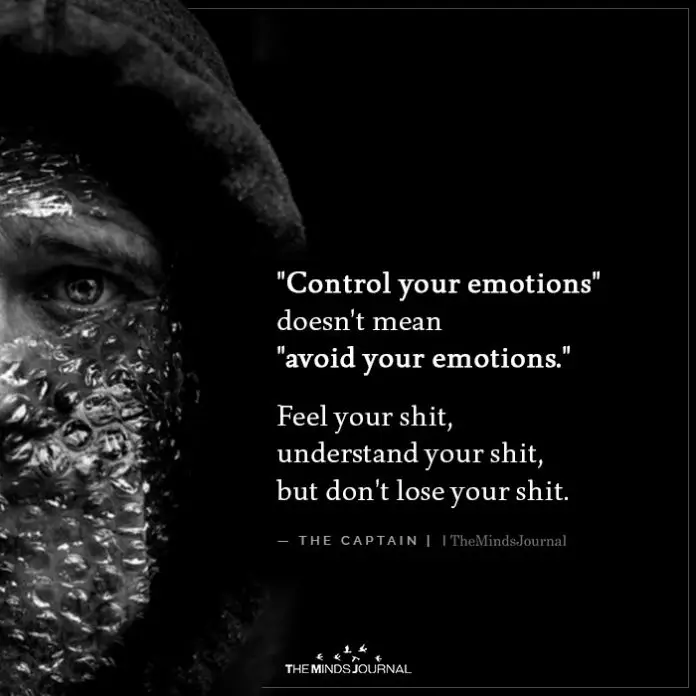
5. You can’t help but overreact when faced with romantic rejection.
Romantic rejection can be particularly devastating for you. Be it a canceled date, a breakup, or even minor issues in a relationship – your responses and reactions are intense, to say the least.
Your reactions are often quite over the top and out of proportion in certain situations, which can be shocking for both you and your partner. The fear of rejection in romantic relationships can lead you to be hyper-sensitive towards your partner’s moods and actions, and you often interpret them as signs they are losing interest in you.
6. You are a people-pleaser.
All you want is to be loved, appreciated, and adored, and that’s why, you never leave an opportunity to overcompensate as much as you can.
Even when you know very well that you should say no and it’s good for you, you’ll end up saying yes. Going above and beyond for people in an unnecessary and self-destructive manner is something you do more often than not.
You’re desperate to be liked and accepted, so you just forget about yourself and your needs and feelings, and after a point, it feels tiring and painful.
Related: 11 Things People Pleasers End Up Doing Unintentionally
7. You have already been diagnosed with ADHD.
This one is pretty simple and self-explanatory. People suffering from ADHD also suffer from Rejection Sensitive Dysphoria. It is a key part of navigating ADHD so if you have ADHD, it’s very likely that you have Rejection Sensitive Dysphoria too.
8. You are a thorough perfectionist.
You are an out-and-out perfectionist and you set high standards for yourself thinking that being perfect is the only way you’ll be accepted and never criticized.
As great and admirable as this sounds, it’s a fragile place to be because these high standards are impossible to meet at times. This has always made you feel like a failure which then leads to a lot of frustration and exhaustion because of you constantly feeling disappointed and inadequate.
Now that we have understood what is Rejection Sensitivity Dysphoria in detail, let’s talk about how to deal with Rejection Sensitive Dysphoria.
How To Deal With Rejection Sensitive Dysphoria?
1. Try not to take every little thing personally.
Yes, it can be hard to hear criticism and harsh stuff, but taking everything personally and letting it consume you will only make you feel worse. Maybe what the other person is saying is not personal, and you are simply overanalyzing it.
And even if it was personal… so what? People say thoughtless or hurtful things sometimes but that says more about them than you. The rejection you perceive doesn’t say anything about you, and everything about them.
2. Practice positive affirmations every day.
Positive affirmations can help you tremendously if you are constantly wondering how to deal with Rejection Sensitivity Dysphoria. Affirmations are basically short phrases you say everyday to yourself to turn down the volume on the negative thoughts swirling around in your mind.
Here are a few affirmations you can practice on a daily basis:
- “I am mentally and emotionally resilient.”
- “I am in the right place at the right time, doing the right thing”
- “I believe in myself.”
- “I will do my best, and my best is good enough.”
- “I am confident.”
- “I am strong.”
- “I choose to be happy today.”
- “I am safe and supported.”
- “I am enough. I have enough.”
- “I am going to make myself proud.”
- “I can do hard things.”

3. Don’t feel ashamed to lean on your family and friends for emotional support.
There will be times when you might feel that nobody has time for you, nobody loves you or that nobody has the time to listen to you vent about the negative thoughts tormenting you. But that’s not true at all!
Your family and close friends will always be there to support you and listen to you, whenever you feel like the noise in your head is getting too loud. Don’t bottle up your feelings, talk to them openly and take one step forward in trying to deal with Rejection Sensitive Dysphoria.
Related: 8 Little Reminders For People Struggling With Rejection
Takeaway
Dealing with Rejection Sensitive Dysphoria on a daily basis can be a tough thing, no doubt, but letting it control your life every step of the way will only make you more unhappy in the long run.
It might feel intimidating thinking about how to break out of it, but there’s always light at the end of the tunnel. Take it one day at a time, and focus on prioritizing your emotional and mental well-being. And before you know it, you will realize just how resilient you really are!
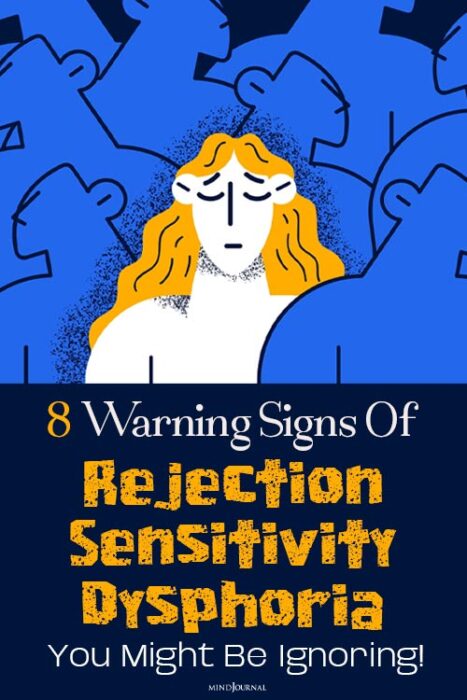
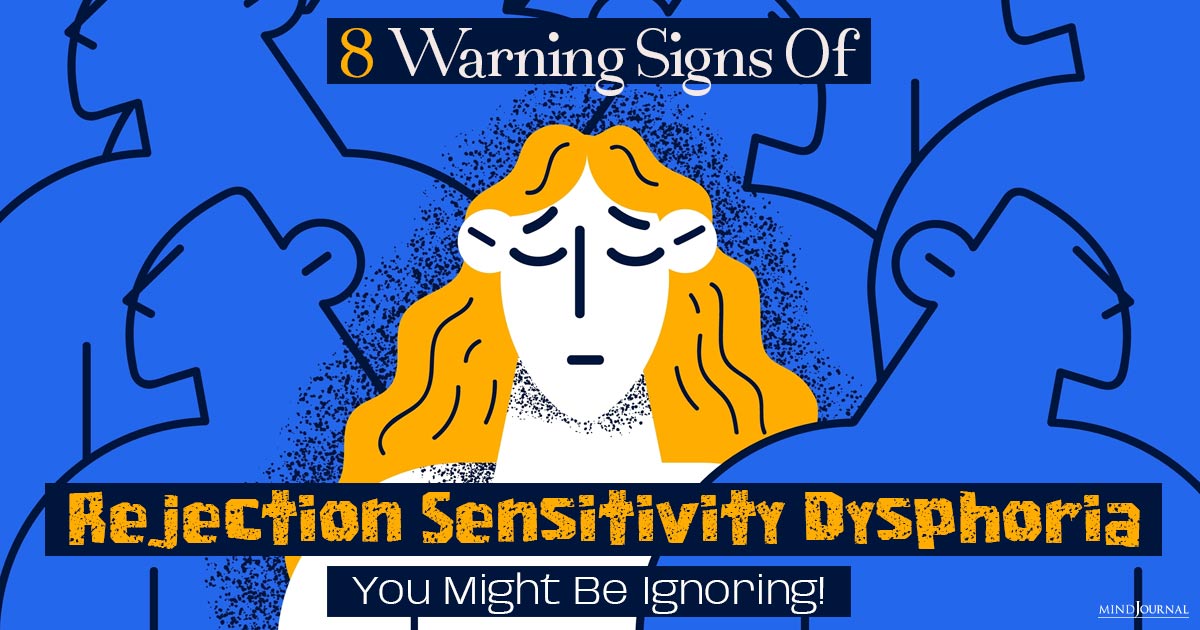
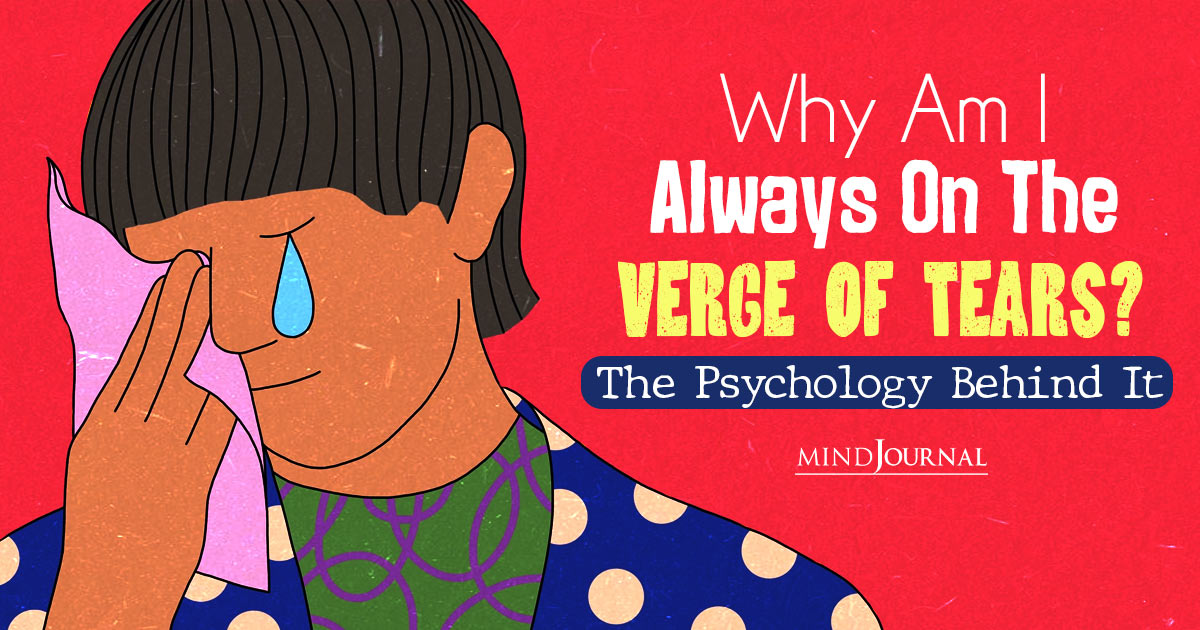

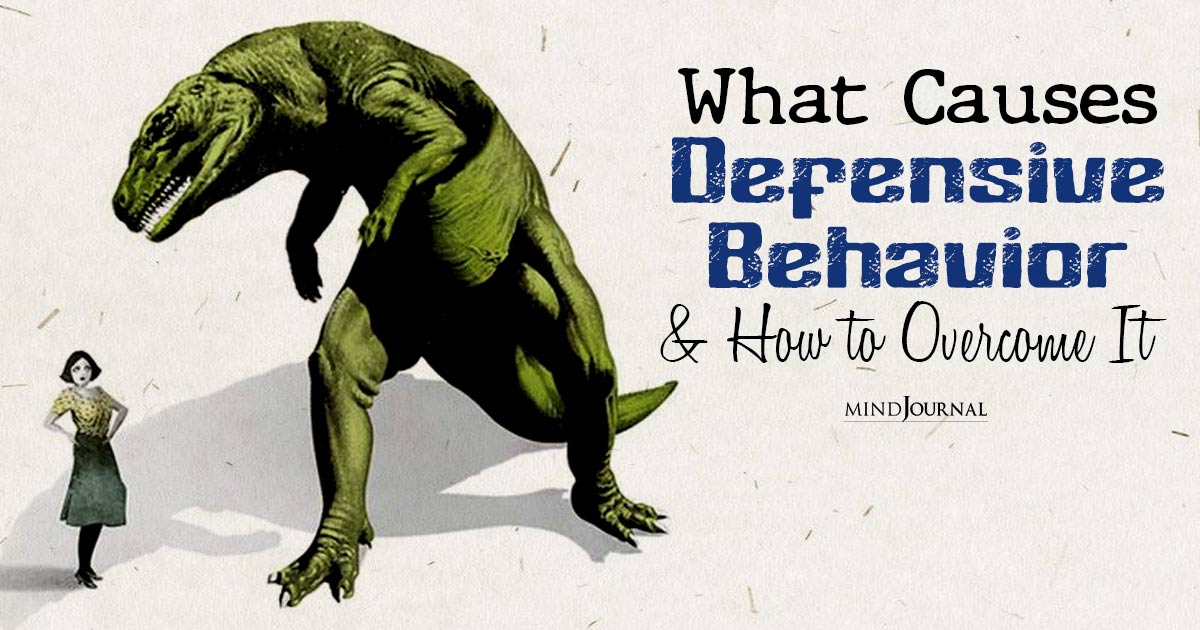
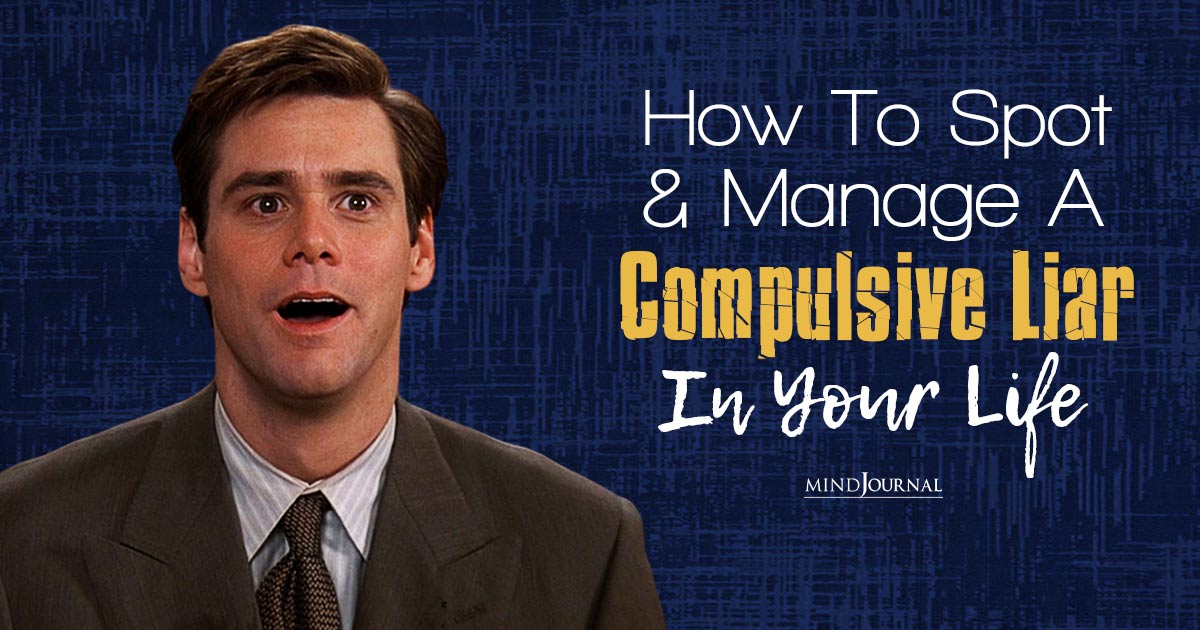
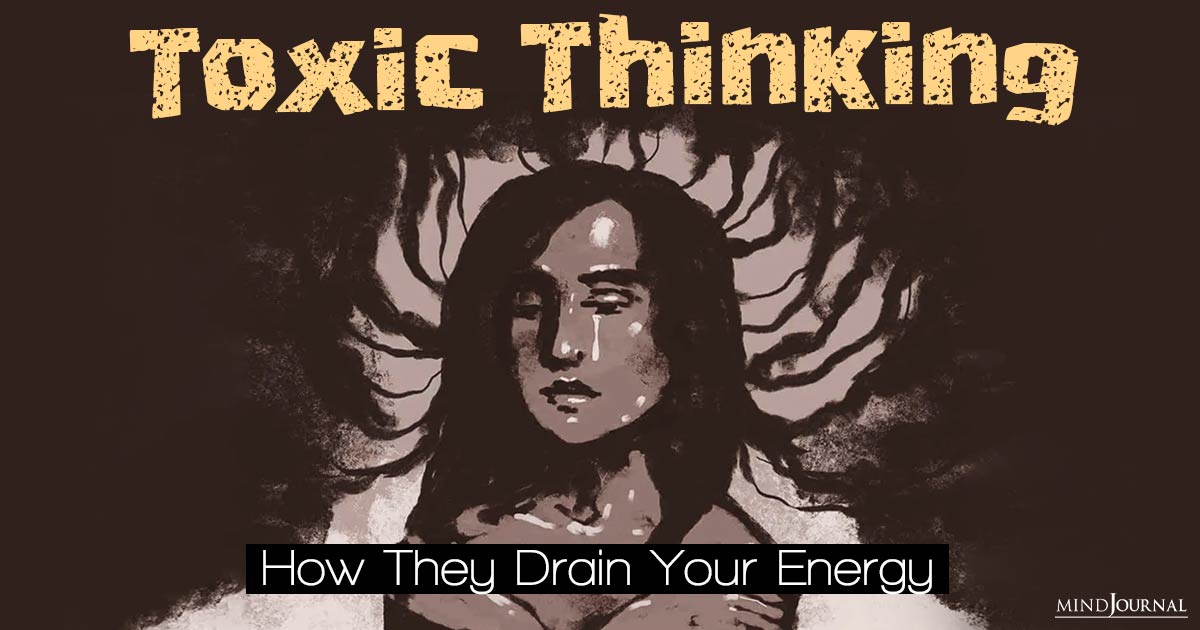
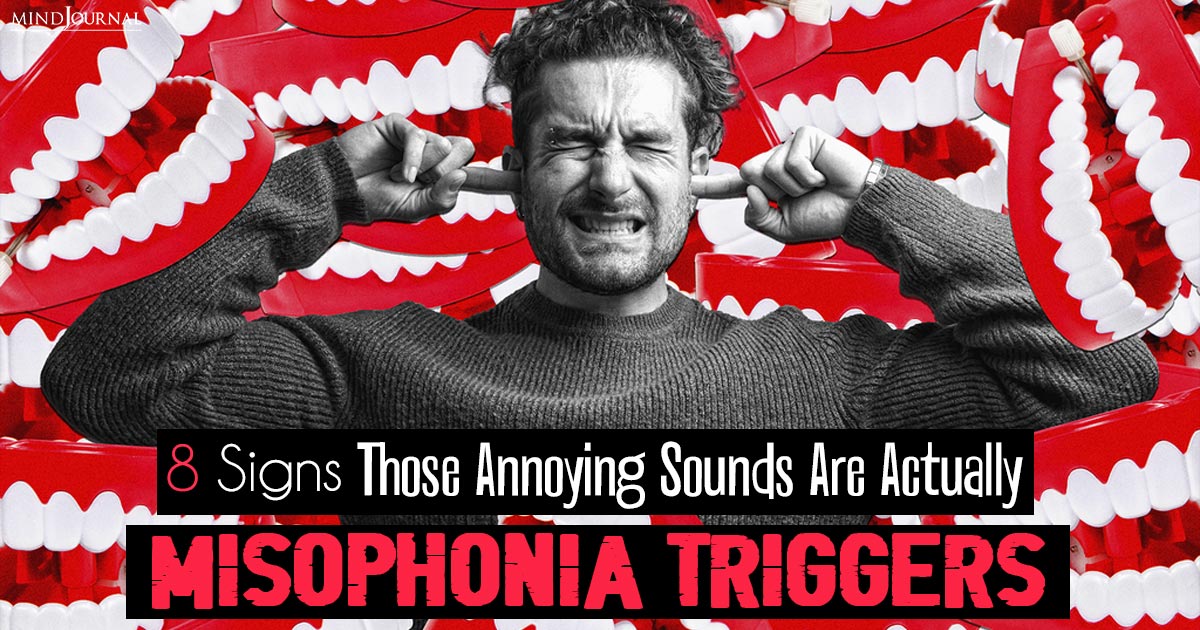
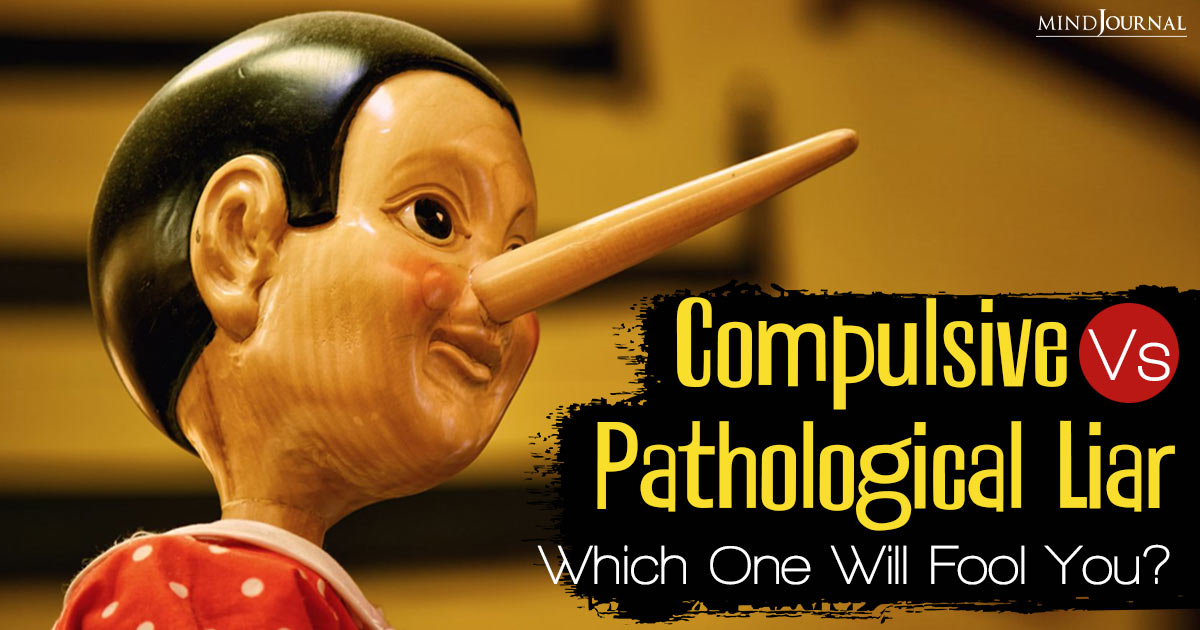
Leave a Reply
You must be logged in to post a comment.